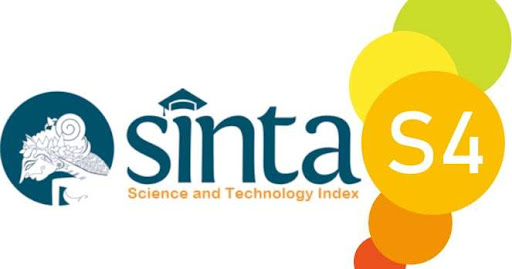The Types and Motives of Maxim Infringement in Agatha Christie’s Murder on The Orient Express Novel (Pragmatic Approach)
DOI:
https://doi.org/10.36733/sphota.v16i2.8402Keywords:
Infringement, maxim, Agatha Christie, pragmaticAbstract
This study performs a pragmatic analysis of Agatha Christie’s "Murder on the Orient Express," focusing on the intentional types and motives behind Grice’s conversational maxims infringement strategies. This research is descriptive qualitative that uses document analysis from the dialogues where the characters strategically infringe the maxims and find the motive(s) behind every infringement. The motives are namely withholding information, providing misleading details, using ambiguity, and creating communicative effects. This research uses domain, taxonomy, componential analysis, and cultural theme as well as inductive technique for the data analysis technique. The results show that there are 118 infringements of the maxims that fulfill the types of all the maxim of quality, quantity, manner, and relevance as well as the motives This research finds out that the story is dominated by the infringement of the maxim of relevance to control information flow which aligns with the novel’s purpose as a crime-solving detective novel.
References
Culpeper, J., Haugh, M., & Kádár, D. Z. (Eds.). (2017). The Palgrave Handbook of Linguistic (Im)politeness. Palgrave Macmillan UK. https://doi.org/10.1057/978-1-137-37508-7
Fitriyani, A., Mujiyanto, J., & Suwandi, S. (2020). The impact of Grice maxims infringement in adventure of Tintin towards communication purposes. English Education Journal, 10(3), 266–272.
Grice, H. P. (1975). Logic and conversation. In Speech acts (pp. 41–58). Brill. https://brill.com/downloadpdf/book/edcoll/9789004368811/BP000003.pdf
Grice, P. (1989). In the way of words. London: Harward University Press. https://static.aminer.cn/upload/pdf/678/631/1450/53e9b124b7602d9703ba6523_0.pdf
Hanifah, I. R. (2013). Non-observance of maxims in Facebook conversation (a case study in English Education Department). Passage, 1(2), 135–144.
Keenan, E. O. (1976). The universality of conversational postulates. Language in Society, 5(1), 67–80.
Mbisike, R. C. (2021). A Survey of Infringements of Gricean Maxims in Some Precautionary Inscriptions on Medicine Packets. Journal of Pragmatics Research, 3(2), 160–172.
Osunbade, N., & Adeniji, A. (2014). Information-based Infringements and Implicit Meanings in Conversations in Select Recent Nigerian Novels. International Journal of Humanities and Social Science, 4(5), 1.
Procknow, G. (2019). The Pedagogy of Saneness: Sane-Centricity in Popular Culture as Pedagogy. New Horizons in Adult Education and Human Resource Development, 31(1), 4–21. https://doi.org/10.1002/nha3.20237
Rohmadi, M., Sudaryanto, M., & Ulya, C. (2019). The Infringement of Maxim and the Perspective of School Teachers toward the News in Mass Media. INCOLWIS 2019: Proceedings of the 2nd International Conference on Local Wisdom, INCOLWIS 2019, August 29-30, 2019, Padang, West Sumatera, Indonesia, 268. https://books.google.com/books?hl=en&lr=&id=YPv6DwAAQBAJ&oi=fnd&pg=PA268&dq=Rohmadi,+M.,+Sudaryanto,+M.,+%26+Ulya,+C.+(2019,+August).+The+Infringement+of+Maxim+and+the+Perspective+of+School+Teachers+toward+the+News+in+Mass+Media.+In+INCOLWIS+2019:+Proceedings+of+the+2nd+International+Conference+on+Local+Wisdom,+INCOLWIS+2019,+August+29-30,+2019,+Padang,+West+Sumatera,+Indonesia+(p.+268).+European+Alliance+for+Innovation.&ots=hMexBvtvuE&sig=62mIvi6Ixnc9lvCb24GRCzZnCuk
Spradley, J. P. (2016). Participant observation. Waveland Press. https://books.google.com/books?hl=en&lr=&id=q7DlCwAAQBAJ&oi=fnd&pg=PR3&dq=Spradley,+J.+P.+(1980).+Participant+Observation&ots=H0dgO_TS19&sig=-dBWqn_HhyboGEqlTMurAS4u4_w
Thomas, J. A. (2014). Meaning in interaction: An introduction to pragmatics. Routledge. https://www.taylorfrancis.com/books/mono/10.4324/9781315842011/meaning-interaction-jenny-thomas













